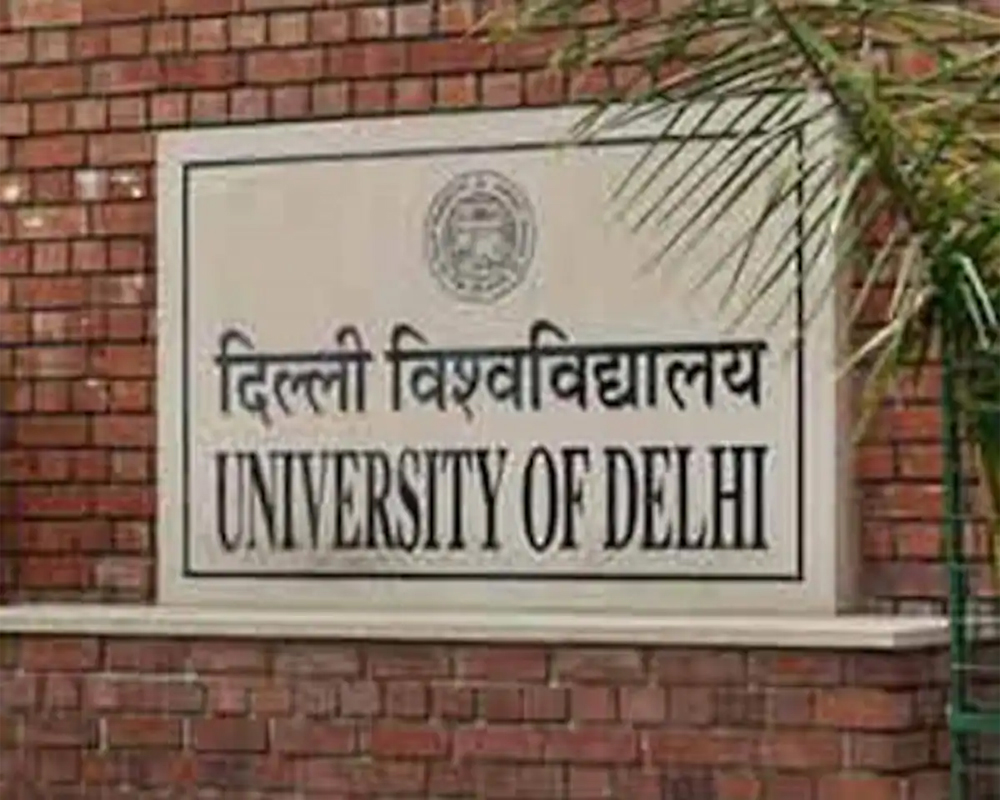It is a pity that when the aim of educational institutions is to create a congenial atmosphere so that truth, the spirit of inquiry and free thinking can flourish through an exposure to ideas from all quarters, a premier centre of learning in the country – the Delhi University (DU) – has sought to close the windows of knowledge in its undergraduate English literature department. For the growth and development of democracy, it is imperative that young minds are shaped in educational institutions through a cross-pollination of cultures. Letting hundred flowers bloom is the guiding principle for education in a democratic set-up. It could be a coincidence that Supreme Court Justice DY Chandrachud highlighted this fact while delivering a lecture August 28 at a time when the obnoxious decisions made by the DU authorities have created a raging storm. The judge didn’t mince words to say public intellectuals have “a duty to expose the lies of the State.” In a democratic country, it is important to hold governments in check and guard against falsehoods, false narratives and fake news. The failure to do so strengthens the hands of autocrats and totalitarian regimes. The words of the judge could not have come at a better time. The totalitarian mindset is being displayed not only by the ‘State’ but also by heads of academic bodies along with institutions of great economic and social importance. This degradation seems to be going out too far because the Establishment is trying to unduly please the temporary masters that are currently warming the seats of State power.
The DU is in the eye of a storm for removing pieces of feminist Dalit literature from its BA (Honours) English syllabus. It has dropped winner of Sahitya Akademi and Padma Vibhushan award winner Mahasweta Devi’s short story, ‘Draupadi,’ a story about the rape of a tribal woman with alleged Naxalite connections in police custody, along with the writings of two Dalit authors Bama Faustina Soosairaj, a Tamil Dalit feminist, teacher, and novelist and Sukirtharani, a feminist poet known for her contribution to contemporary Dalit and Tamil literature. The university’s Oversight Committee has been charged with acting in a high-handed, arbitrary manner disregarding all canons of academic pursuits while imposing its decisions on the removal of the literary pieces, considered invaluable human documents on the oppression of Dalit women. There were protests against the ‘overreach’ of the committee. As has been prescribed by Justice Chandrachud, intellectuals have come forward to register vehement disapproval of the attempt to trample free flow of ideas in an ‘authoritarian way.’ The university’s Academic Council member Mithuraaj Dhisiya was shocked to find that the Oversight Committee did not have any experts from the concerned department the syllabus of which was changed. This is supposedly against basic academic rules.
Deliberations at the Academic Council meeting held after the pieces had been dropped indicated the anger of the academics at the ‘arbitrary change of the texts’ in the fifth semester syllabus bypassing statutory bodies such as faculties, committees of courses and standing committee. The meeting even termed the decision ‘maximum vandalism.’ The motive of the Oversight Committee appears all the more suspect since it has replaced the two Dalit writers – Bama and Sukirtharani – by an ‘upper caste’ writer Ramabai. Similarly, the committee’s fiat to the English department to remove Mahasweta Devi’s short story was issued without buttressing the decision with any academic logic. What is worse her literary piece – Draupadi – has been taught in the DU since 1999 because of its seminal academic value. It also found pride of place in the University Grants Commission’s model syllabus 2019 for BA (H) English.
There is hardly any room for doubt about the sinister design of the Oversight Committee’s decisions which reek of bias against intellectual and artistic freedom, respected for centuries, to question accepted beliefs and traditions. For, it has also instructed the department to replace Chandrabati Ramayana with Tulsidas. This sixteenth century interpretation of the Ramayana by a woman poet of now Bangladesh is an extraordinary example of looking at the epic from the standpoint of Sita. It is remarkable that a feminine creative mind could predate the independent interpretation of the Ramayana by the iconic, 19th century Bengali poet Michael Madhusudhan Dutt, who lionised Ravana and his son, Indrajit, over Rama and Lakshman. Michael was influenced by the 17th century poet John Milton’s epic, Paradise Lost, where the Biblical theme of the supremacy of God over Satan was questioned. This is how civilisation has progressed over the centuries giving free reins to the indomitable human spirit. Attempts were made to crush free inquiry, but eventually truth has time and again triumphed over falsehood.
The DU would do well to reverse the decisions and uphold, as cogently argued by the apex court judge, the liberal pursuit of truth blowing away the cobweb of lies as a cornerstone of democracy. Only when the mind is without fear, one can walk with the head held high. Academic institutions are the cradle of free thought and democratic minds which alone can help the growth of democracy. Apart from democracy, these alternative thoughts are the foundations on which the minds of the young are encouraged to question.
Truth comes out only when questions are asked. A race that is not taught to put up questions, without bothering about whether the questions are reasonable or not, shall be doomed to live in ignorance and darkness.
